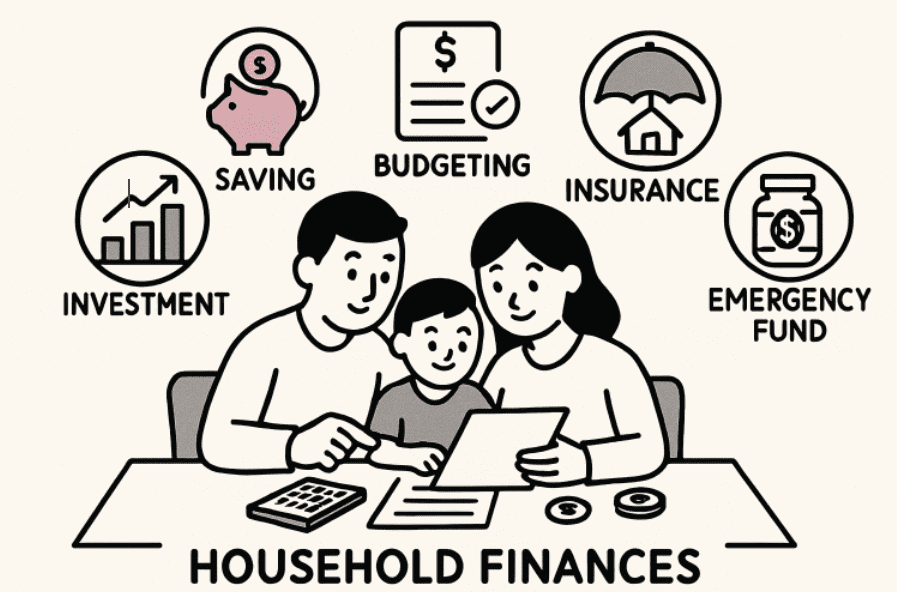Key Takeaways
- Tracking expenses and budgeting lay the foundation for financial wellness.
- Building an emergency fund ensures you’re prepared for life’s uncertainties.
- Managing debt and smart investing are critical steps to a secure future.
- Educating yourself and seeking professional help can accelerate your progress.
Financial wellness is about building stability and confidence in your finances through small but consistent steps. Adopting proven practices can make a difference, whether you’re just beginning your journey or looking to refine your approach. When an extra boost is needed, solutions like MaxLend loans can provide quick access to funds to cover urgent needs and keep you on track.
By integrating innovative strategies and making informed decisions day after day, you create a future that feels less stressful and more secure, even if the unexpected comes up. Embracing these habits can help you face any situation with resilience, setting a foundation for lifelong financial well-being.
Article Breakdown
Track Expenses and Create a Budget
Every successful financial plan starts with understanding where your money goes. Begin by recording your daily expenditures for a few weeks, use apps, spreadsheets, or even a notebook. After identifying your spending patterns, draft a budget that covers your fixed and variable costs, prioritizes savings, and balances your goals with your lifestyle.
Budgeting isn’t about depriving yourself; it’s about making your money work for you. Establish spending limits for non-essentials and look for ways to trim unnecessary costs. This proactive approach frees up money for your priorities and gives you peace of mind about your finances.
Build an Emergency Fund
Life is full of surprises, and an emergency fund is your safety net for when the unexpected strikes. Ideally, set aside three to six months’ living expenses in a high-yield savings account. If saving that much feels daunting, remember that every bit counts. Start by keeping a modest amount, such as $20 a week, and gradually increase contributions as your financial situation improves.
This fund will give you breathing room if you face sudden expenses like car repairs, medical emergencies, or temporary unemployment. Having this cushion means avoiding unnecessary debt or disruption when life doesn’t go as planned.
Manage Debt Effectively
Unmanaged debt can hinder your financial goals, but you can take back control and build momentum with the right approach. List all your debts, noting balances, interest rates, and minimum payments. One effective strategy is the avalanche, tackling high-interest debts first while maintaining minimum payments on others. Alternatively, the snowball method targets smaller balances for faster psychological wins.
Consider consolidating with a lower-interest option like a MaxLend loan to streamline your repayment. This can reduce your monthly burden, help reduce total loan cost, and minimize total interest paid. You can even apply online for added convenience. Consistency and discipline in your chosen strategy are essential to achieving long-term debt freedom.
Invest for the Future
Once you have your debt under control and an emergency fund, investing becomes a powerful tool for wealth-building. Diversifying your investments, mixing stocks, bonds, real estate, and mutual funds, can help manage risk and increase the likelihood of reaching your financial goals.
Thanks to compound growth, even modest regular contributions to investment accounts can grow significantly. Set clear objectives, such as saving for a home, a child’s education, or retirement, and align your investments with your risk tolerance and time horizon. Don’t be afraid to adjust your portfolio as your goals or market conditions change.
Plan for Retirement
Starting early is the best way to lay a solid retirement foundation, but it’s never too late to begin. Take advantage of retirement savings accounts offered by your employer, such as a 401(k), or consider opening an individual retirement account (IRA). Contribute as much as possible, and increase your contributions whenever you receive a raise or bonus.
Understanding the power of compound interest over time makes a big difference: small regular contributions now can result in a sizable nest egg later. Regularly review your retirement plan to ensure you’re on track, adjusting your strategy if your goals shift or circumstances change.
Protect Your Financial Health
Insurance acts as a vital safety net for your assets and well-being. Review your health, life, auto, and disability insurance coverage to ensure your needs are met. Adequate insurance coverage shields your finances, helping you recover more quickly should life throw you a curveball.
Also consider insurance as part of your broader financial wellness strategy: protecting the progress you’ve made gives you the confidence to keep moving forward.
Educate Yourself Financially
Empower yourself by increasing your financial literacy. Read personal finance books, follow reputable financial news outlets, and take advantage of online courses to deepen your understanding of critical topics like budgeting, investing, saving, and credit management.
The more you know, the better you’ll navigate decisions, evaluate opportunities, and manage financial risks. Making time for ongoing learning ensures your strategies stay current and effective.
Seek Professional Help
If your finances feel overwhelming or you want personalized advice, consider connecting with a certified financial planner or trusted advisor. These professionals can help clarify your financial picture, tailor strategies to your unique goals, and demystify complex financial products.
Don’t hesitate to ask for assistance, sometimes a partner in your financial journey is the key to unlocking your full potential.
By implementing these strategies, you can steadily strengthen your financial foundation and build the confidence to pursue your dreams with less worry about money. Whether you’re navigating daily expenses, preparing for life’s curveballs, or planning for the future, smart financial habits pave the way to lasting wellness.



